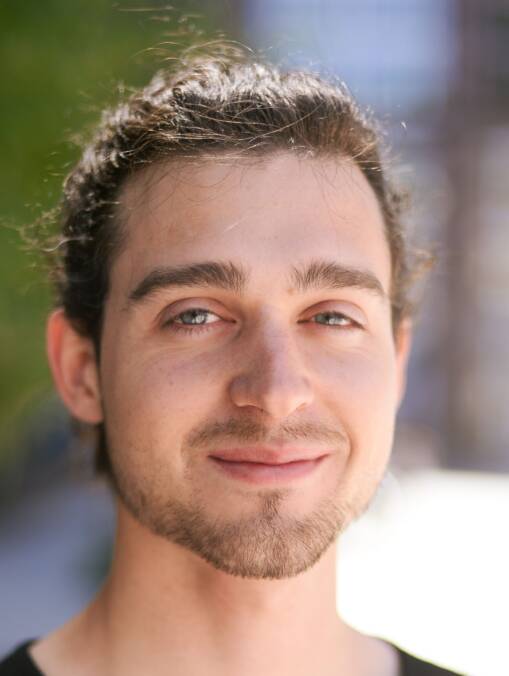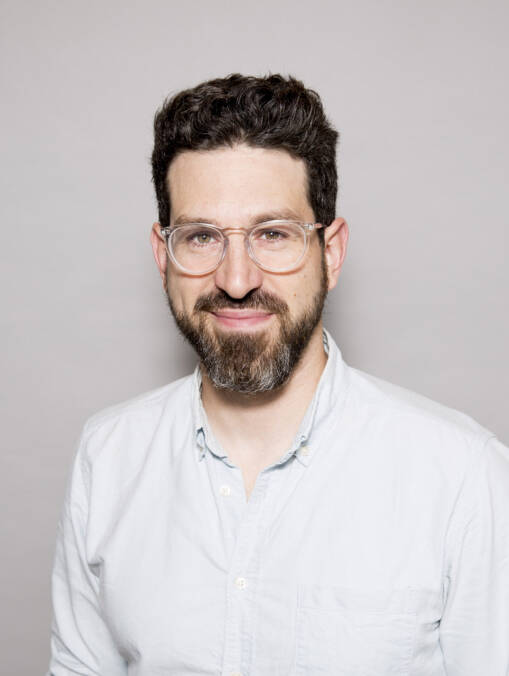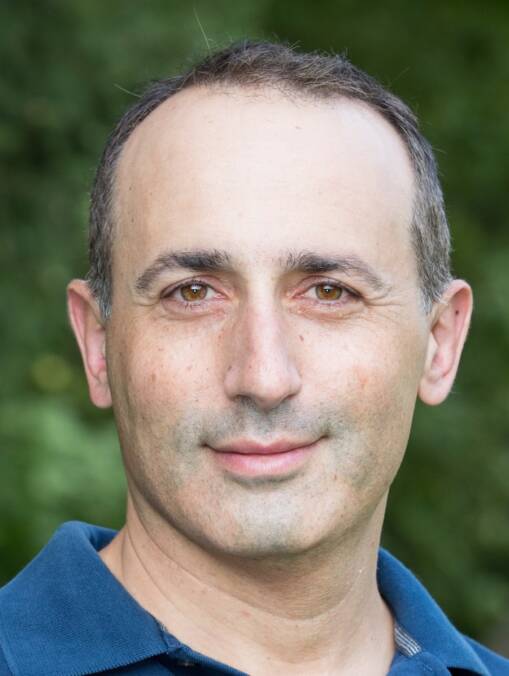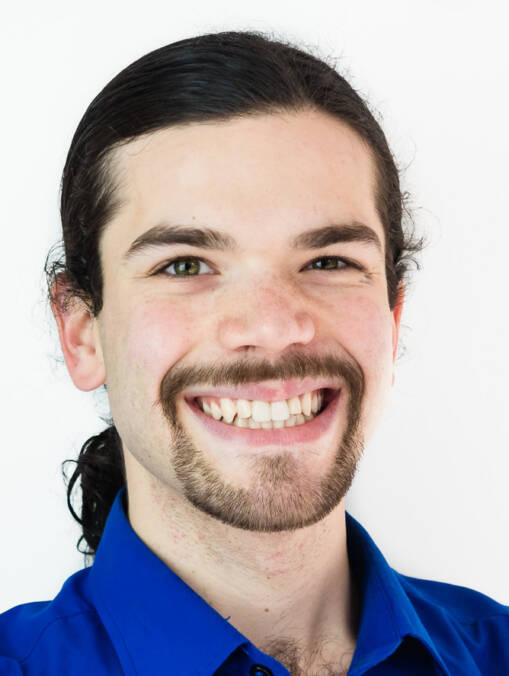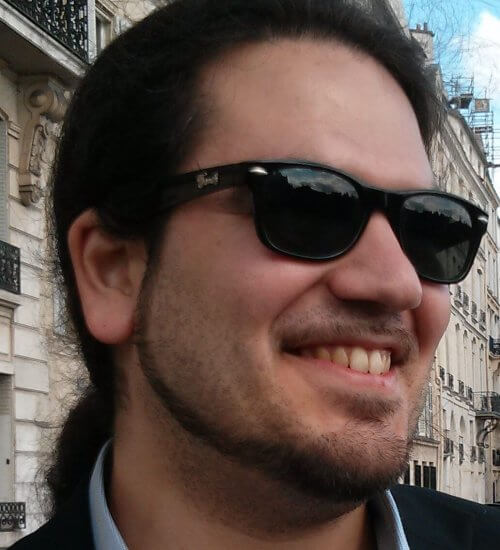A team led by Professor Reihaneh Rabbany, Canada CIFAR AI Chair and Assistant Professor at McGill University, along with experts in cybercrime and criminology, recently launched Infrared. This project aims to sift through the online advertising market to find anomalous organized activities characteristic of human trafficking rings involving multiple potential victims. In line with Mila’s mission for the responsible development of AI, the research team is acutely aware of the ethical considerations involved and is grounded in victim-centric governance principles. View the news coverage (in French)
Impact Report 2020-21
Impact
Report
2020-2021
Mila: A world-renowned artificial intelligence hub in Quebec
A word from Pierre Boivin, Chairman of the Board of Directors
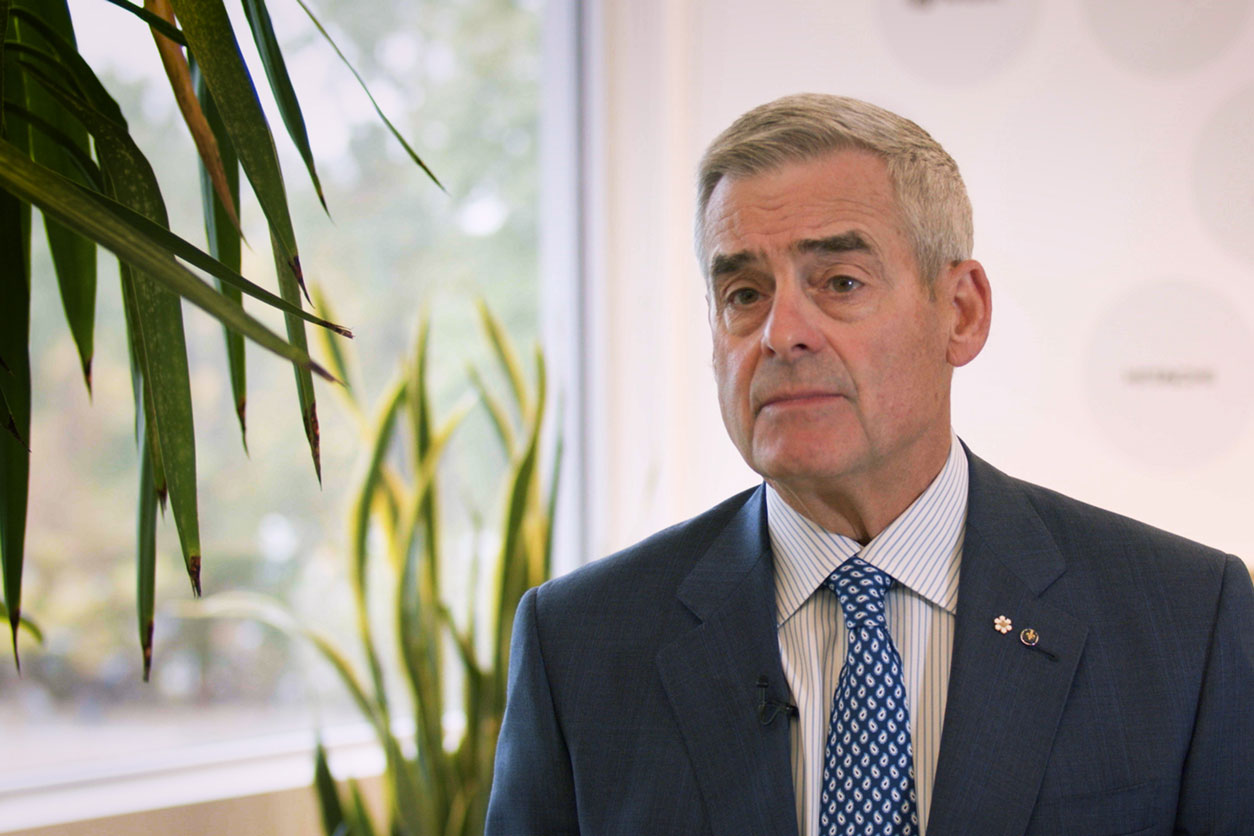
A word from Valérie Pisano, President and CEO
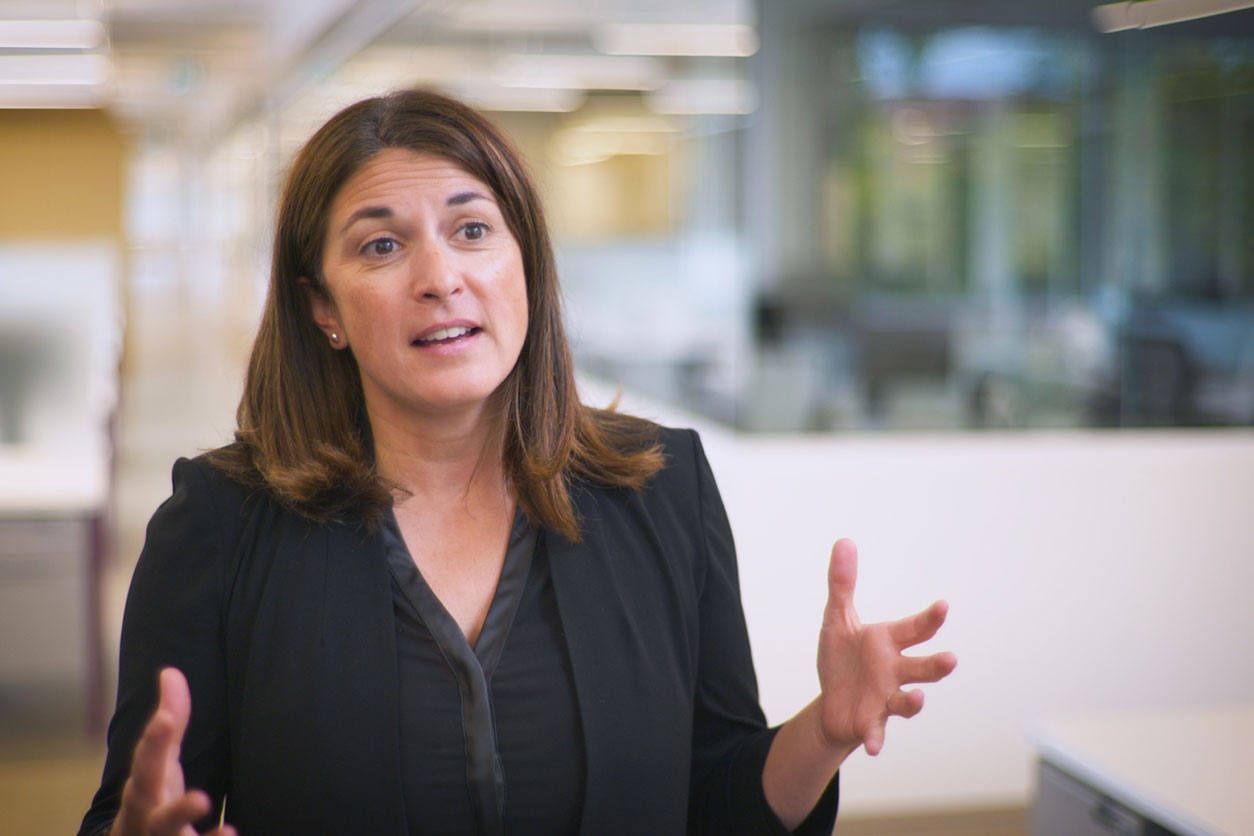
A word from Yoshua Bengio, Founder and Scientific Director
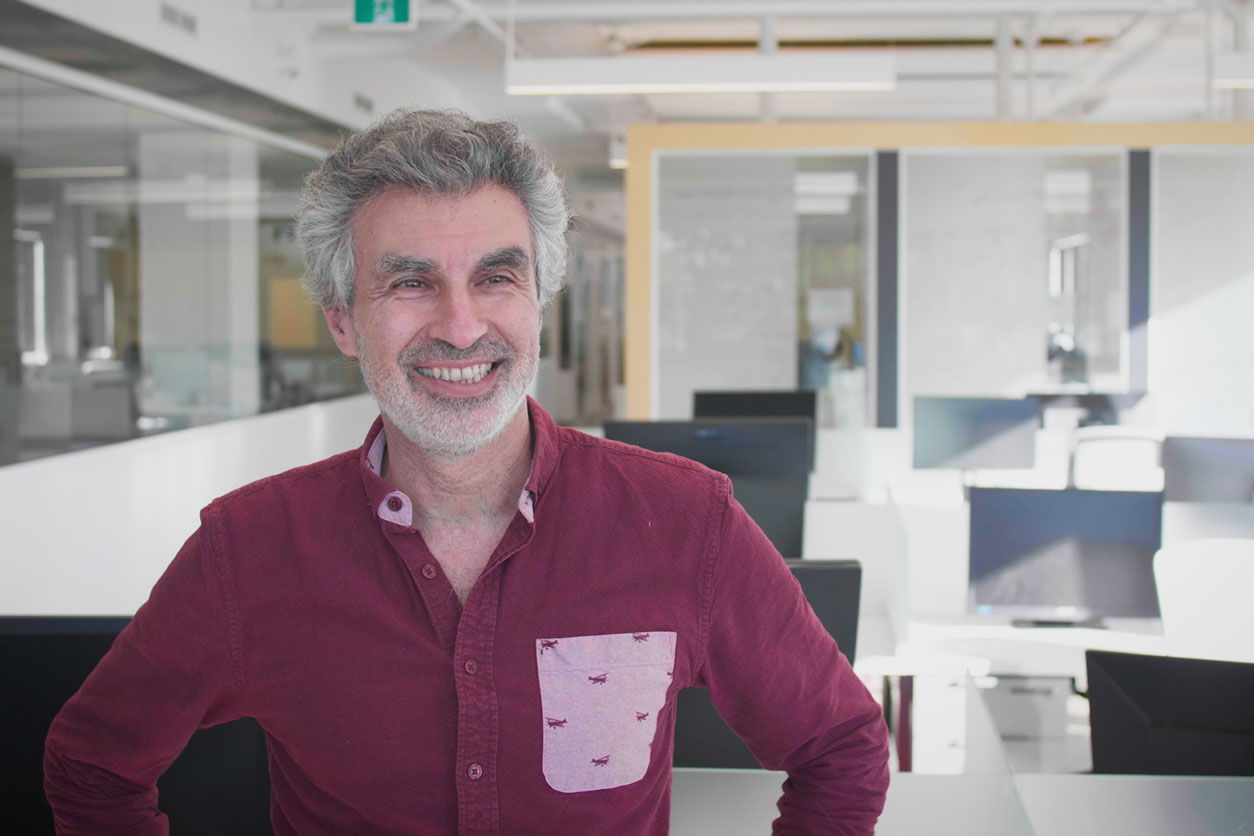
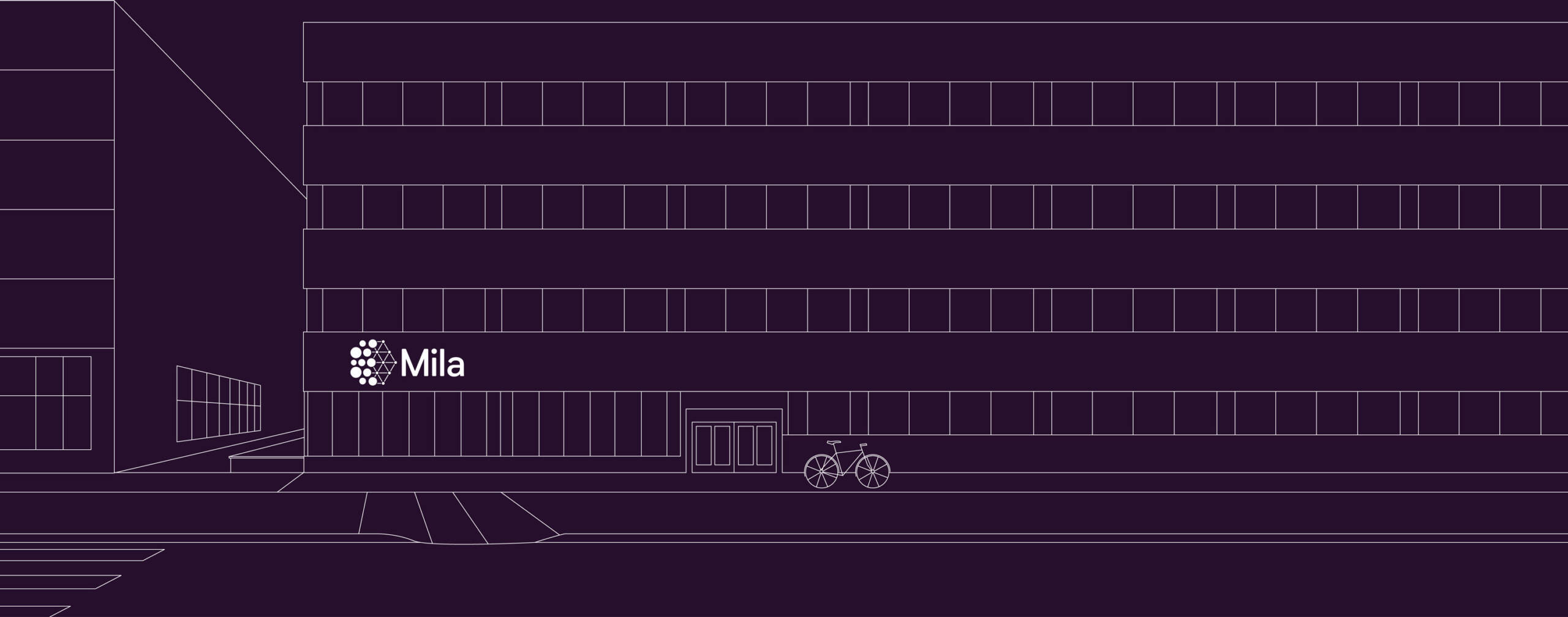
OUTSTANDING GROWTH
CIFAR AI Chairs
As of October 2021, Mila’s growing community includes 48 active Canada CIFAR AI chairs, representing 44% of all AI chairs in Canada.
Faculty Growth
In the past year, Mila welcomed 23 new professors, increasing the number of faculty members from 64 to 87. The Mila faculty has more than doubled since 2019.
Students and Researchers
Today, some 700 researchers (master’s, doctorate, postdoctorate, interns, visitors) and over 130 students (professional master’s, DESS) are part of the Mila community, making it the largest concentration of academic deep learning researchers in the world.
Number of Researchers
The number of researchers at Mila has tripled since 2018, further confirming the attractiveness of Quebec’s AI sector.
Mila Employees
The number of employees increased from 60 to 71, up 18%.
A Quebec Institute
Mila is the result of a unique collaboration between Université de Montréal, McGill University, Polytechnique Montréal and HEC Montréal, and hosts professors from Université Laval in Quebec City, Université de Sherbrooke and the École de technologie supérieure (ÉTS) in Montreal. Mila is also a first-class meeting place for our Quebec and global industry partners who reap the benefits of working closely with our rich talent pool and technology transfer teams. By attracting international talent and organizations to Montreal, Mila has a recognized economic, social, and scientific impact that strengthens Quebec's leadership position.
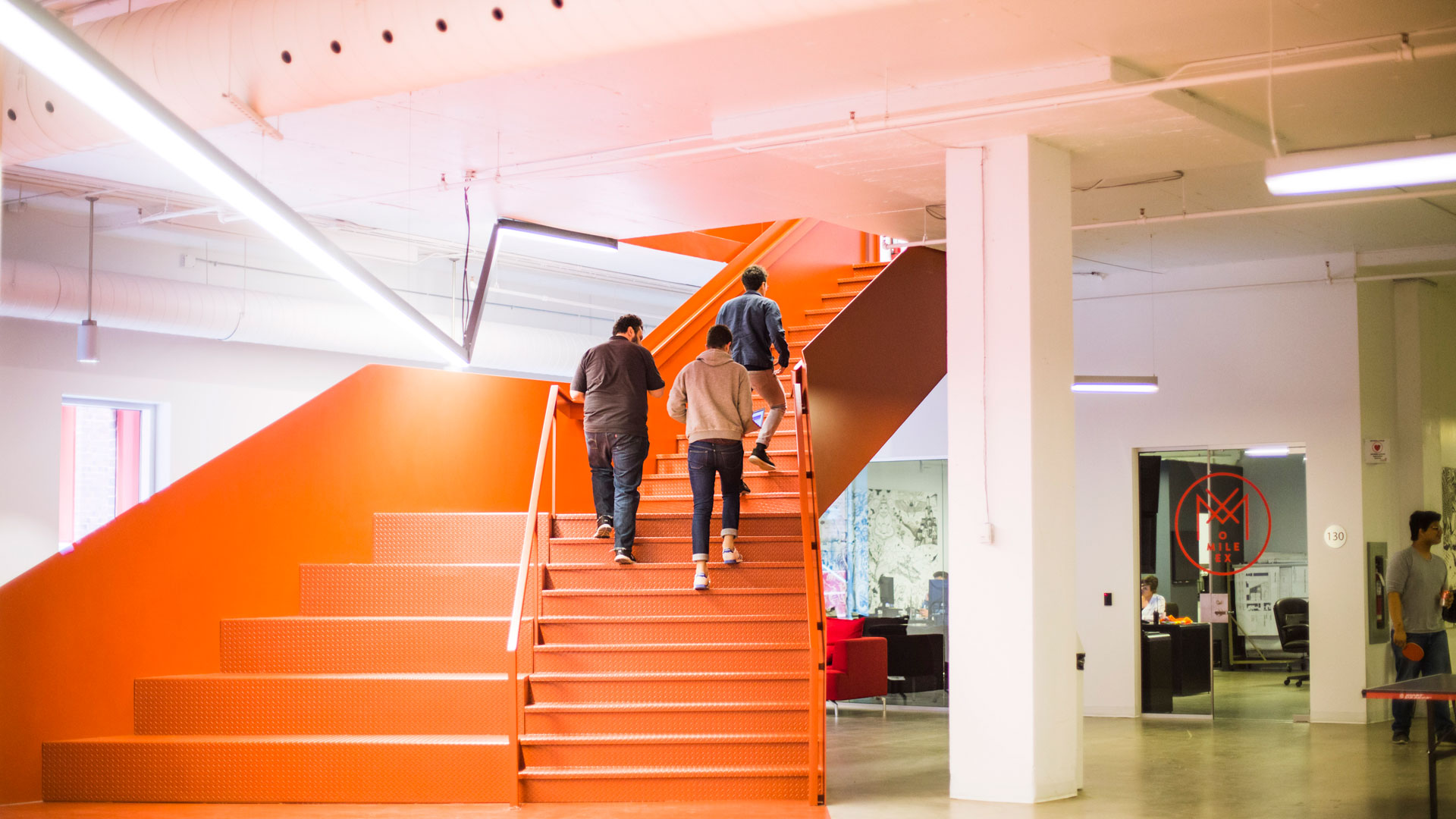
A MAJOR ECONOMIC DRIVER
Industry Partners
The number of Mila industry partners from Quebec, Canada, and the rest of the world has increased by 100% since March 2020, from 42 to 84.
Applied Research Projects
Since its inception, Mila's applied research team has worked on more than 112 projects to help companies at home and abroad accelerate the development and deployment of artificial intelligence in their products and services.
Startups at Mila
46 startups are members of Mila. Of those, 16 emerged at Mila.
Company Internships
More than 176 Mila interns have worked in Quebec companies since 2018 to help them make the shift towards AI.
International Students
Mila's attractiveness is confirmed as approximately 70% of its students come from abroad.
Mila graduates working in Quebec
The proportion of graduates of the Professional Master’s and DESS programs who work in Quebec organizations.
Quebec, a Leading AI Hub
Since 2018, over 30 international technology companies have set up an AI research lab or a place of business in Montreal.
The city is also 1st in Canada for university research funding in AI, with $1.34+ billion yearly.
There were more than 32,000 workers with AI-related skills in Quebec in 2021, of which more than 27,000 are located in Greater Montreal. This number grew by 4,650 between 2020 and 2021 according to an analysis of LinkedIn’s Talent Insights by Montréal International.
The AI community stands on a strong information technologies ecosystem representing over 230,000 jobs in Quebec.

RENOWNED SCIENTIFIC LEADERSHIP
Scientific Publications
Since 2018, 341 scientific articles have been published with co-authors from industry.
Scientific Publications
Number of peer reviewed articles since 2018.
Scholarships
A total of 795 scholarships have been awarded to students and researchers since 2018.
Research Projects
Last year, the number of research projects at Mila increased from 154 to 321, a 127% increase.
Participants
Training sessions, seminars, reading groups and other events attracted approximately 22,000 participants.
Media Mentions
This past year, Mila and its researchers were mentioned over 6,000 times in the media worldwide.
STUDYING AT MILA
“Mila offers a collaborative culture that allows me to share my research with my peers, meet inspiring colleagues, and be supervised by some of the world's best deep learning faculty. This wealth of ideas has the potential to create incredible innovations, and it is a privilege to be part of this adventure.”

“Studying at Mila allows me to work with, and learn from, inspiring colleagues every day. The variety of expertise allows me to collaborate on interdisciplinary projects, which is a real asset for my research! I particularly like that the values of humanism, openness, and diversity are felt throughout the different initiatives that shape our research experience.”
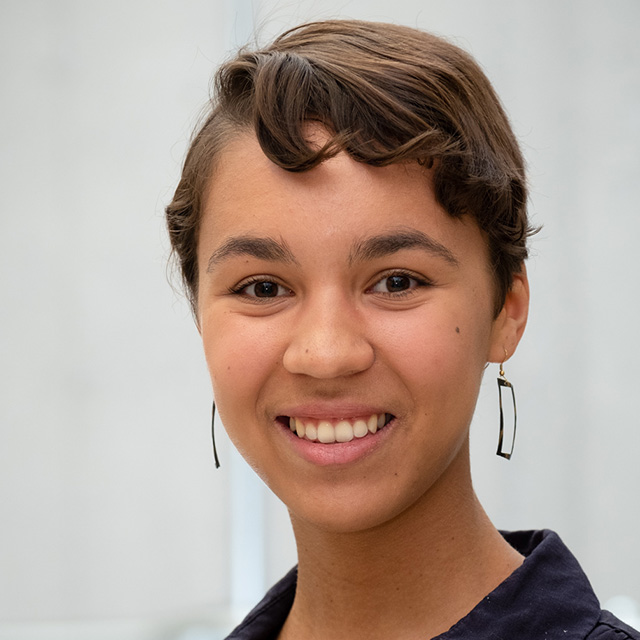
New Canada CIFAR AI Chairs
Mila is proud to count 10 new Canada CIFAR AI Chairs among its faculty since january 2021:
AI FOR HUMANITY
For the Benefit of All
The socially responsible development of artificial intelligence is a fundamental component of Mila’s mission. We continue to move the needle on the social dialogue and the development of applications and projects that will benefit society.

Biasly AI deploys a natural language processing algorithm onto online text to identify not only racial or gender bias but also debias problematic sentences. Advances in natural language processing will contribute to future research on the automatic detection of bias in written texts and may eventually allow these algorithms to analyze all forms of texts.
In spring 2020, Mila and UNESCO launched a call for proposals to identify blind spots in AI policy and program development. The collective work, to be published later this year, will explore creative, novel and far-reaching approaches to provide world leaders, policy-makers and civil society members with perspectives that will be critical to ensure the development of AI reaches its full potential in accordance with ethical values and human rights.
All over the planet, companies and their subcontractors exploit men, women and children to reduce the costs of the goods we consume daily. So, how can we detect whether supply chains of goods produced with components from multiple regions of the world comply with international labor standards? In collaboration with The Future Society, which is supported by the international human rights group Walk Free, researchers from Mila are currently developing an algorithm capable of performing compliance analysis of reports issued by companies regarding the use of modern slavery in their supply chains. These reports are required in some nations by modern slavery legislation. This algorithm would make it possible to compare these reports with the standards in force, thus contributing to the increased accountability of companies in this area.
AI AND HEALTH
Prioritizing Healthcare Transformation
Research at the intersection of AI and health is a top priority at Mila as AI becomes increasingly integral to healthcare innovation. To date, Mila brings together more than 35 world-renowned faculty members whose research interests lie at the interface of AI, health, and life sciences, ranging from bioinformatics and medical machine learning to neuroscience and oncology.
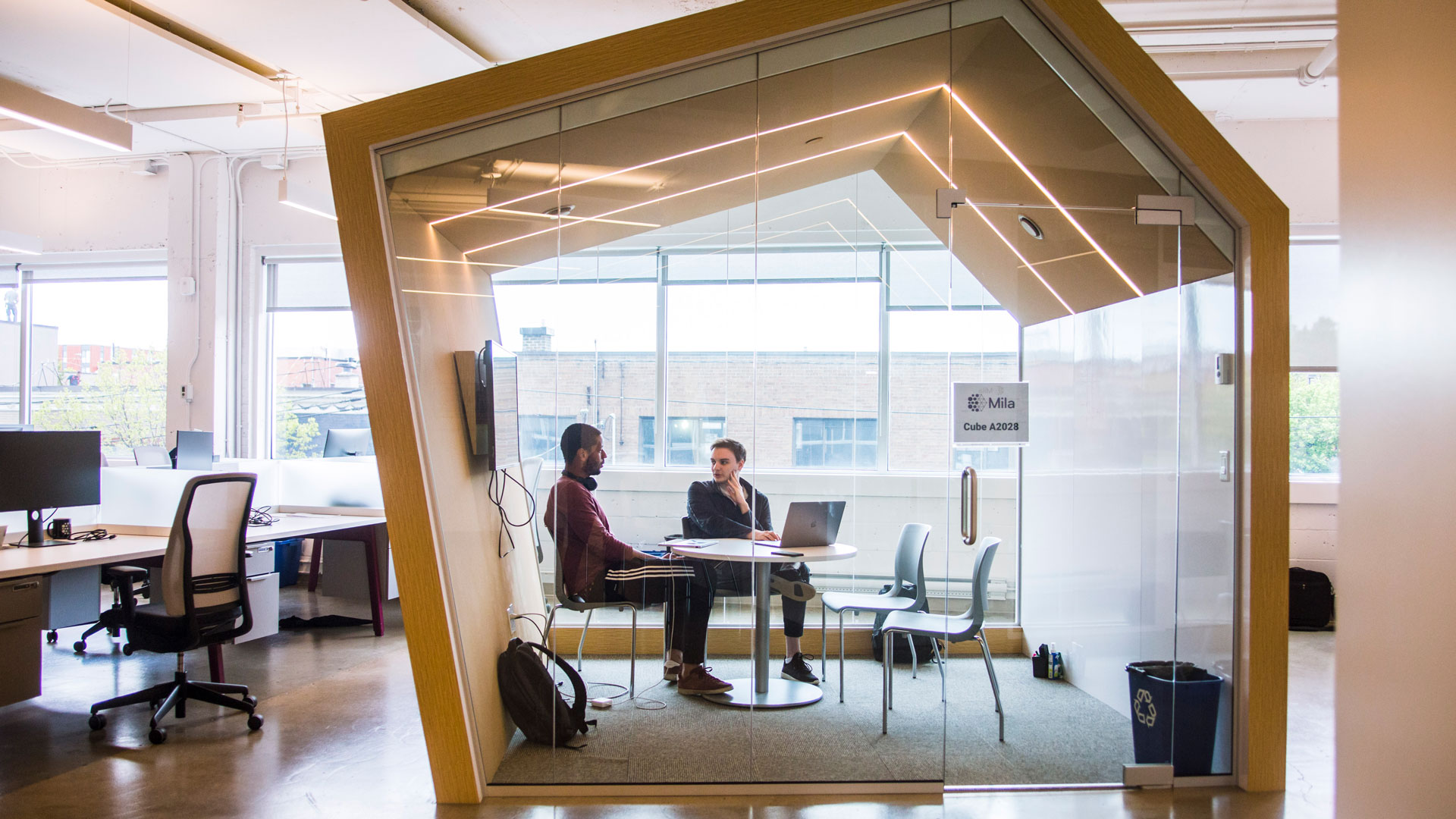

TorchDrug: Open-source drug discovery
ReadTorchDrug: Open-source drug discovery
A team led by Jian Tang, Mila core faculty member and Assistant Professor at HEC Montréal, recently launched TorchDrug—an open-source machine learning platform aimed at making AI drug discovery software and libraries freely available to the research community. TorchDrug is one of the first known open-source platforms allowing machine learning practitioners to use, contribute, and apply fundamental algorithms to accelerate drug discovery.
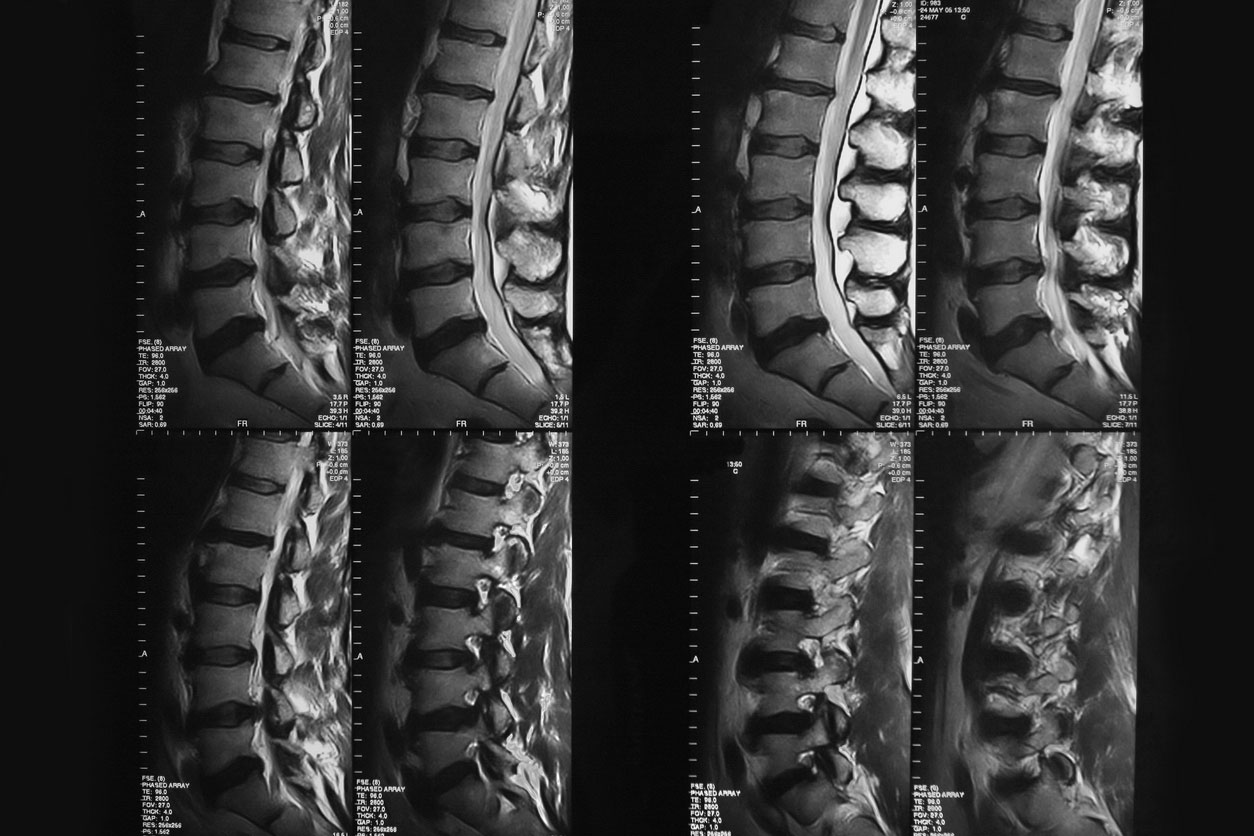
Major Breakthrough in Spinal Cord Imaging
ReadMajor Breakthrough in Spinal Cord Imaging
Julien Cohen-Adad, Mila Associate Academic Member and Associate Professor at Polytechnique Montreal, and his team have recently published two papers in the prestigious Nature group of journals. Their work could represent a major breakthrough in spinal cord imaging and transform the development of treatments for neurodegenerative diseases or spinal cord injuries. The first publication details the steps of a protocol that standardizes spinal cord images taken by MRI, while the second demonstrates the protocol's effectiveness. The project, spanning over five years, has resulted in the creation of an open-source database. The data will enable the standardization of images using biomarkers or by identifying certain structures and accelerate the work of researchers in this field worldwide.

Contributing to Interdisciplinary Initiatives
ReadContributing to Interdisciplinary Initiatives
Mila extends its AI expertise and leadership to large-scale, interdisciplinary initiatives to deliver sustainable healthcare solutions for the benefit of all.
- Génome Québec’s Roundtable for Precision Medicine: Created in September 2020 by Génome Québec, Mila participates in this roundtable to consolidate Quebec's expertise in genomics, artificial intelligence and medicinal chemistry in order to maintain the province's leadership at the forefront of research in precision medicine.
- Digital Health & Discovery Platform (DHDP): The DHDP is a pancanadian initiative co-led by the Terry Fox Research Institute and Imagia, with support from Canada’s three leading AI research institutes (Mila, Vector Institute, and Amii). DHDP is focused on improving health outcomes for Canadians and advancing precision medicine technologies.
- Digital transformation of Healthcare with AI at Roche (aiR): Since November 2020, Roche has been working closely with the three national AI institutes (Mila, Amii, and the Vector Institute) by developing collaborations to accelerate research, development, application, and access to cutting-edge AI solutions in healthcare.

Strategic Partnerships in Health
Our large-scale projects are often carried out in close cooperation with our industry partners. More than 20 of our partners, or 26%, are from the life sciences sector.
Through these alliances, Mila collaborates on several important health initiatives, ranging from basic and applied research projects with health-related applications to digital platforms that foster collaboration between different industry players.
BIOS and Mila: A novel approach to treating chronic heart conditions
Professors Blake Richards (McGill) and Guillaume Lajoie (UdeM) are working closely with BIOS Health, a biomedical company whose goal is to optimize, automate, and personalize the treatment of chronic heart conditions through neural interfaces. Partners since 2019, BIOS and Mila researchers are bringing together their brightest minds to develop a closed-loop neuromodulation system using AI.
AI FOR COVID-19 INITIATIVES
Leading during a Pandemic
Since the beginning of the pandemic, many of our researchers have joined the fight against COVID-19 to help the scientific and medical communities in these critical times facing humanity.
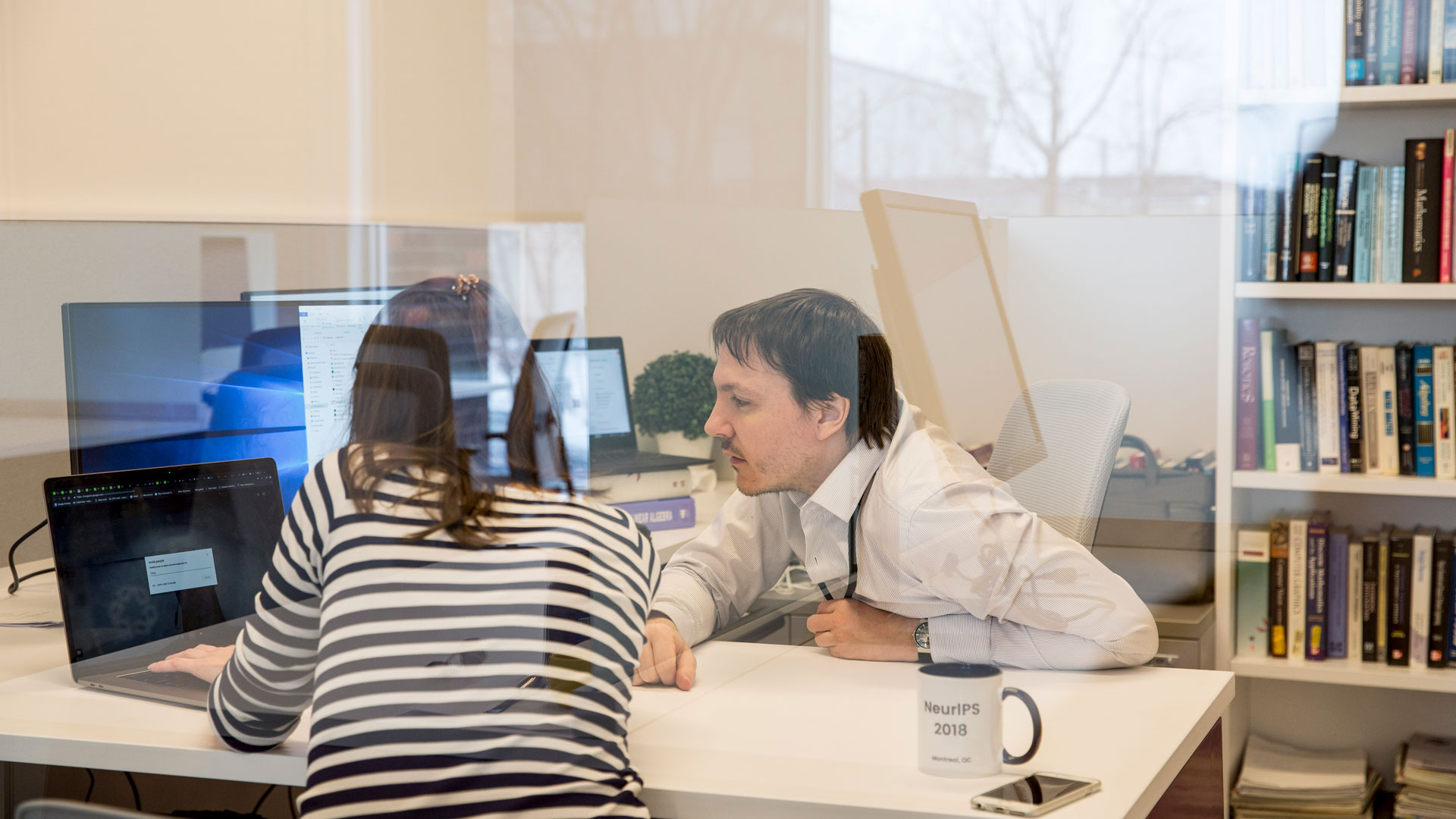
Five projects co-led by Mila scientists are being supported by the CIFAR AI & COVID-19 Catalyst Grants program:
- PanXcea: PANdemic Prediction with X-ray-based COVID-19 External Analysis Marzyeh Ghassemi (Vector, UofT), Joseph Paul Cohen (Mila, UdeM), Chris McIntosh (UofT)
- Leveraging Biomedical Knowledge Graphs for COVID-19 Drug Repurposing Strategies Jian Tang (Mila, HEC), William L. Hamilton (Mila, McGill), Yoshua Bengio (Mila, UdeM), Guy Wolf (Mila, UdeM), Yue Li (Mila, McGill)
- Modeling the Transmission of SARS-CoV-2 Between Zoonotic Sources on a Gene Level Guillaume Rabusseau (Mila, UdeM), Vladimir Makarenkov (UQAM), Bogdan Mazoure (Mila, McGill)
- Machine Learning Against COVID-19: Accelerating Small Molecule Drug Discovery Sarath Chandar (Mila, Polytechnique Montréal), Matthew Taylor (Amii, UofA), Sai Krishna (99andBeyond)
- Planning as Inference in Epidemiological Dynamics Models Frank Wood (Mila, UBC), Benjamin Bloem-Reddy, Alexandre Bouchard et Trevor Campbell (UBC)
Ioannis Mitliagkas, Mila Core Academic Member and Assistant Professor at DIRO of UdeM received Mitacs grants for two COVID-19 related projects:
- Using machine learning to improve treatment against COVID-19;
- Novel molecular representation, molecular generation and data mining strategies for SARS-CoV-2 treatment design.
Professor Bengio was also awarded by the Canada First Research Excellence Fund ‒ IVADO for another COVID-19 project:
- Integrating genomics and AI to accelerate drug discovery against COVID-19
A recent study led by Professor Reihaneh Rabbany and her students proposes a modified version of the standard SEIR model. Taking COVID-19 infected flights to and from Canada into account could enable early detection of outbreaks, more accurately estimate the reproduction number of the disease and better evaluate the impact of travel restrictions and the implications of lifting these measures.
Social distancing measures induced by the COVID-19 pandemic led Professor Danilo Bzdok and his colleagues to seek to understand the effects of loneliness and lack of social support on our brains and overall health. Professor Bzdok's neuroscience research has resulted in two distinguished publications in leading scientific journals, Nature Communications and Cerebral Cortex. The first study reveals a neural “signature” in the brains of lonely people that make them distinct in fundamental ways, based on variations in the volume of different brain regions and on how those regions communicate with one another. The second study found that the brains of individuals lacking social support have distinct neural substrates that make them more vulnerable to loneliness, addiction and stress. This work underscores the critical need to deepen our understanding of the consequences of social isolation on mental and physical health.
AI FOR THE ENVIRONMENT
Innovation for the Benefit of the Planet
Mila gathers many researchers who use their expertise and know-how to develop AI tools and applications to help fight climate change and find sustainable development solutions. In this video, rising star David Rolnick, named to MIT Technology Review’s prestigious list of Innovators Under 35, discusses these efforts.
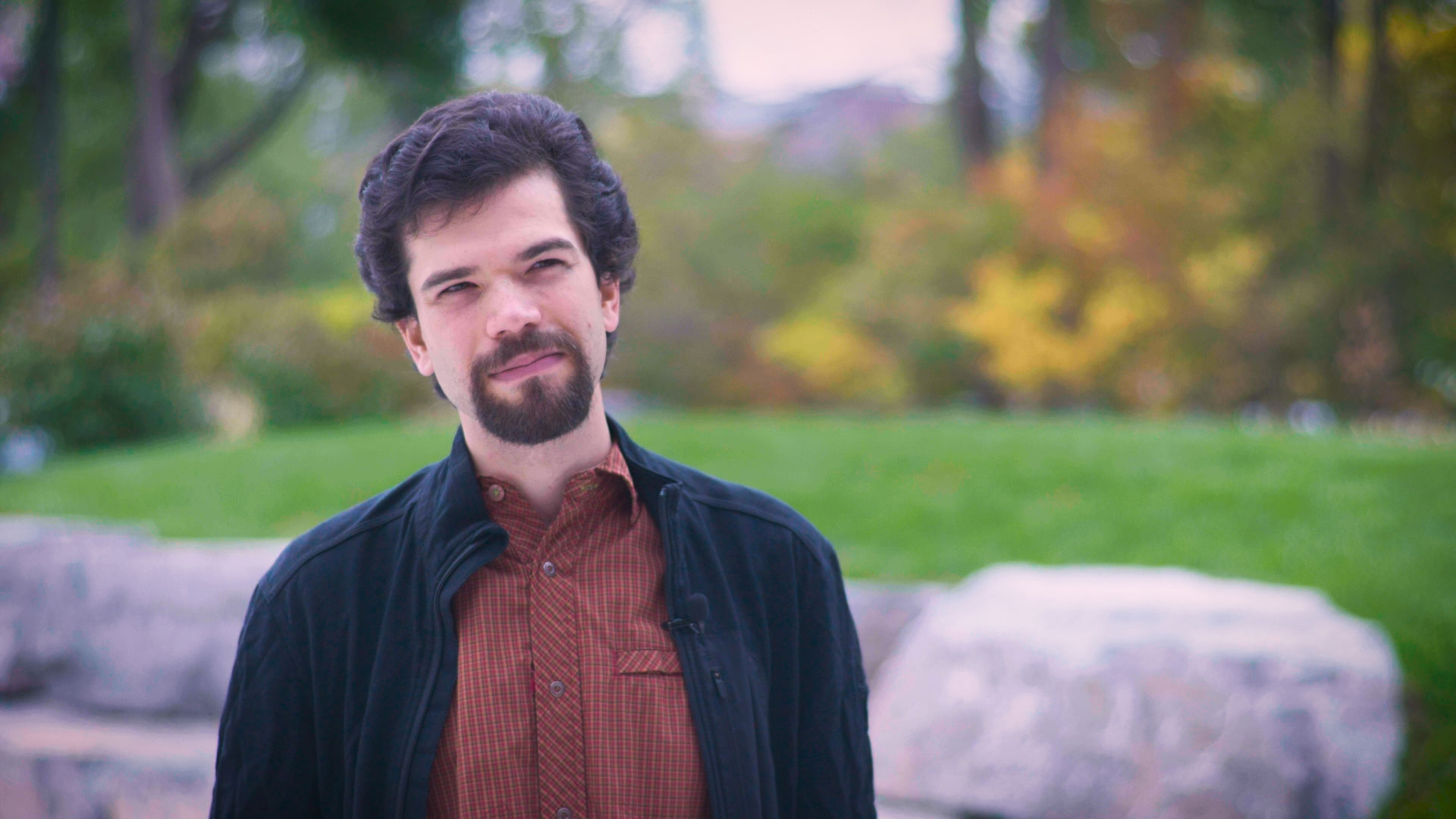
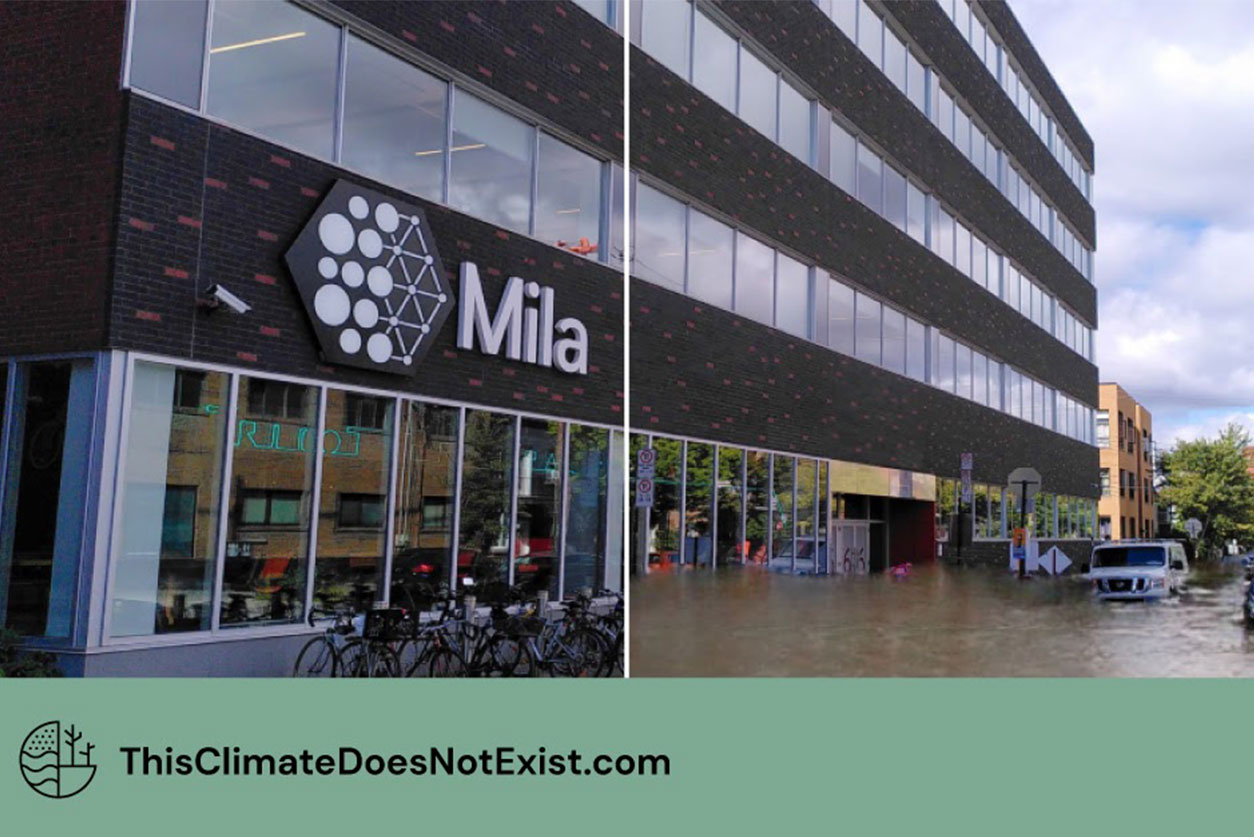
This Climate Does Not Exist: Visualizing the impacts of the climate crisis
ReadThis Climate Does Not Exist: Visualizing the impacts of the climate crisis
Concerned by the sharp rise in natural disasters, a team of researchers led by Sasha Luccioni, Victor Schmidt, and Alex Hernandez-Garcia, supervised by Yoshua Bengio, launched a website that allows users to visualize the impacts of climate change at any address on the planet. This Climate Does Not Exist invites users to project themselves into environments altered by one of the occurrences of climate change. What would a place look like if it were affected by a flood, a forest fire or smog? Using a complex algorithm, the site generates a realistic filter of the effects of climate change on a selected location in Google Street View. The experience raises awareness in users about the possible scenarios if the world’s response to climate change continues to fall short. Since its unveiling in October 2021, the platform has received extensive global media coverage with nearly 100 media publications worldwide.

CodeCarbon: Tracking computing’s carbon emissions
ReadCodeCarbon: Tracking computing’s carbon emissions
While AI can benefit society, the amount of energy needed to support its computing power proves costly to the environment. That's why in December 2020, Mila, in collaboration with Boston Consulting Group's GAMMA entity, Comet, and Haverford College, unveiled CodeCarbon. This open-source software enables the carbon footprint of algorithms and code to be assessed and adjusted based on location and more. The ability to track CO2 emissions is a significant advance for developers, allowing them to use energy resources more wisely, reduce their work's environmental impact, and introduce greater transparency within the community.

Employing AI for Disaster Response
ReadEmploying AI for Disaster Response
Due to rising temperatures caused by the climate crisis, Samira Kahou, Canada CIFAR AI Chair and Associate Professor at ÉTS, and her team are designing a multi-modal, semi-supervised deep reinforcement learning algorithm to detect and predict forest fires in North America. Kahou and her team hope to identify areas at risk for wildfires using weather data and satellite imagery.
She is also working to avert locust swarm attacks in Africa to prevent crop devastation resulting from the increased number of cyclones.
LOCAL AND INTERNATIONAL PARTNERS
84 Partners
Mila collaborates with many Quebec and international organizations that work daily with our talent pool to drive AI projects forward. The industry’s proximity to our more than 700 researchers and teams of highly qualified personnel makes Mila a unique meeting place for exchanges. Our 84 industry partners form a vibrant community dedicated to accelerating the development and adoption of AI while also offering exciting job opportunities to our graduates. Whereas in 2018, Mila counted less than 20 partners, the more than 400% growth in just a few short years confirms the attractiveness of Quebec and Montreal for all things AI and the added value of Mila in their AI adoption journey.
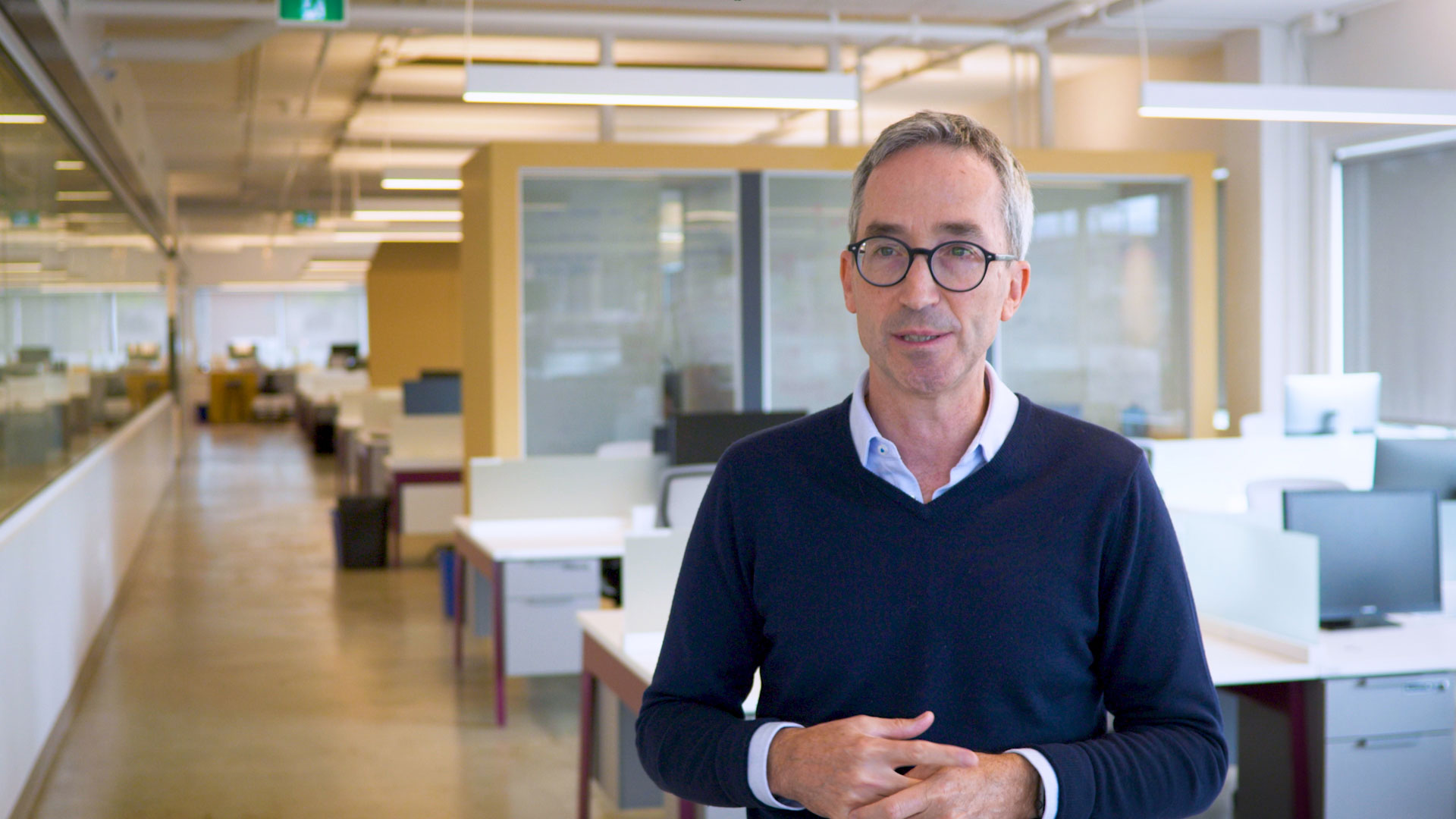
A Symposium Reserved Exclusively for Partners
Each year, Mila offers its partners exclusive access to the latest scientific advances of its professors and student researchers during this unique event.
Dan Nitta Mackay
Industry Technical Specialist, Intel
“The Mila Partners Symposium offers both the opportunity to see the latest research across many exciting new areas of investigation as well as consider future areas of collaboration across areas of joint interest. The Mila research community is rich with talent, innovation and most importantly fosters an environment to boldly explore potential solutions to unsolved problems.”
Dr. Kirill Tarasov
Head of Biostatistics and Advanced Data Analytics, Roche Diagnostics
“The symposium is a great event for fostering collaborations. It provided cutting-edge scientific lectures on AI and created lots of opportunities to exchange during open discussion sessions. It also supported kicking-off new collaborations by describing detailed partnership frameworks. It was an enlightening event for our scientists and future projects.”
Payel Das
Trustworthy Generation Lead, Principal Research Staff Scientist and Manager, Trusted AI, IBM
“The Mila Partners Symposium is an ideal venue to get familiar with the latest and greatest of the AI foundational advances and applied research happening at Mila. The symposium allows partners to kick-start and deepen joint collaborations to foster impactful AI and scientific innovation toward addressing important global challenges.”

Attracting Foreign Investment
“Mila plays a vital role in supporting our economic development efforts in AI and has become a widely recognized name that attracts considerable interest. In three years alone, we have supported some 40 foreign investment projects worth $1 billion. Mila’s influence is beneficial across all high-tech sectors.”

Biotech company Recursion chooses Montreal for its R&D lab
“Mila and Montreal are known for their vibrant artificial intelligence community focused on cutting-edge research and real-world issues of importance to society. This ethos is strongly aligned with Recursion's mission to decode biology to radically improve many lives.”
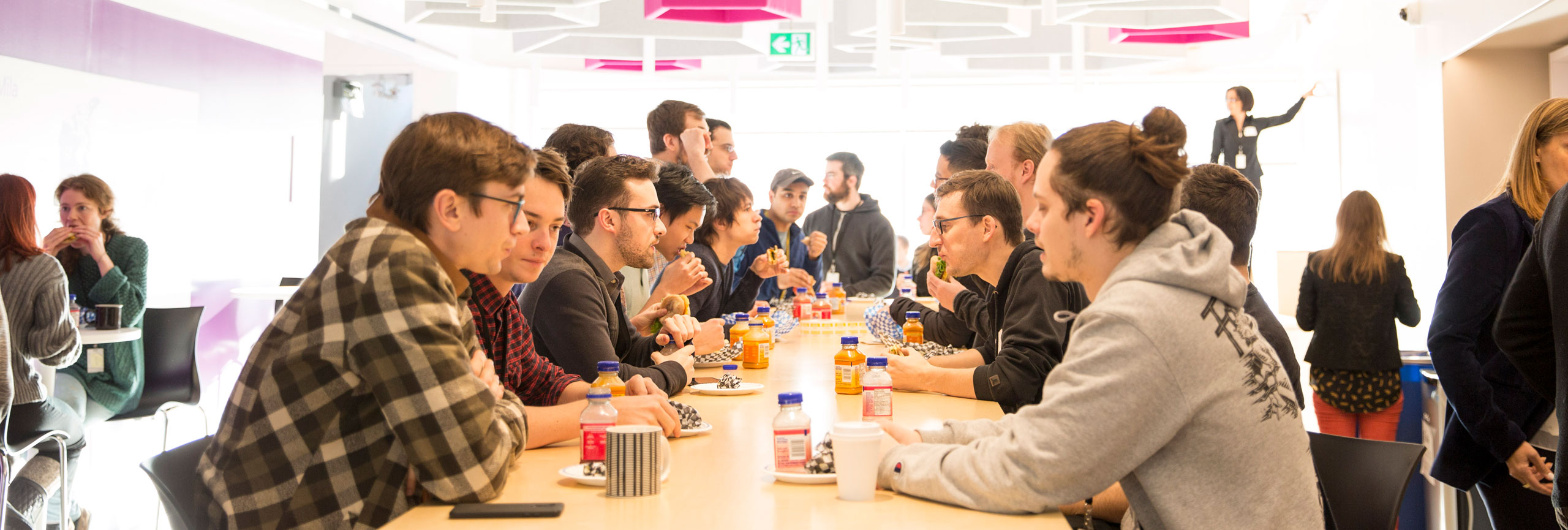
STARTUP PROGRAM
Nurturing Entrepreneurial Spirit
Since its inception, Mila has been a fertile breeding ground supporting emerging startups within its community and across the broader AI ecosystem. In addition to actively contributing to the Next AI, Centech and Creative Destruction Lab programs, Mila is committed to nurturing the entrepreneurial ambitions of its student researchers through unique programming developed for founders. Over 45 startups are Mila partners, more than a third of which have emerged out of Mila. Mila also hosts Axe IA by Espace CDPQ, an incubator program for young Quebec companies within its office spaces.
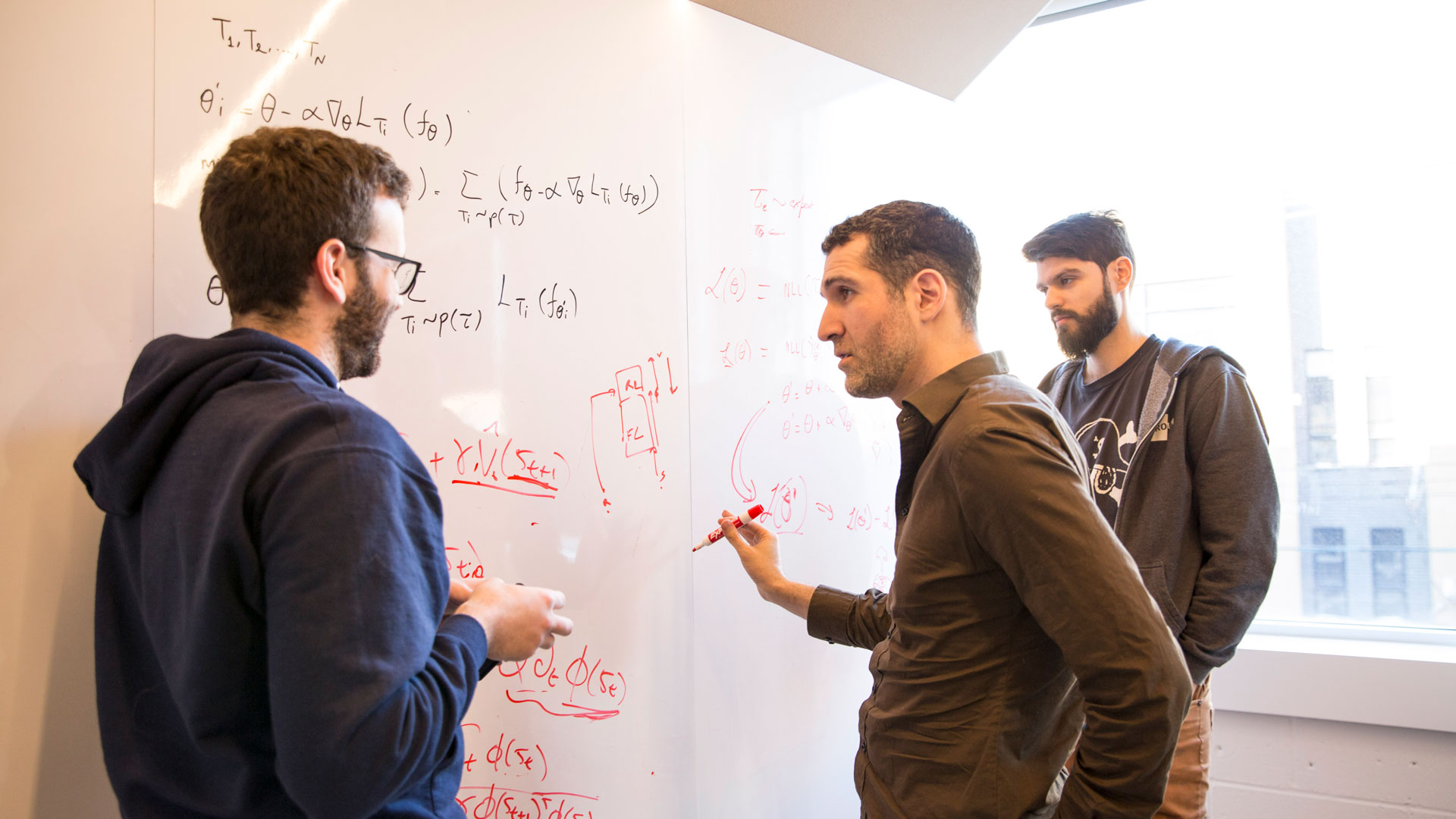
AI ADOPTION: APPLIED RESEARCH FOR INDUSTRY
Expertise tailored to Your Organization
To bridge the gap between industrial and academic research, Mila’s team of machine learning experts collaborates on applied research projects, developing AI solutions that meet the specific needs of your organization.
In addition, as part of its Industrial Research Assistance Program, the National Research Council Canada calls upon Mila to support small and medium-sized businesses in the adoption and deployment of machine learning. Since 2021, 15 companies have benefited from this program.
Here are three applied research projects currently under way:
Optina is developing a platform for the early detection of Alzheimer’s disease using retinal imaging. With retinal images provided by Optina, Mila scientists are working with the Optina team to develop deep learning models to characterize fundus biomarkers with more accuracy and accelerate early detection of this disease.
D-BOX is redefining entertainment experiences with its immersive haptic technology. The Quebec-based company sought the expertise of our applied research scientists to better understand how machine learning can be used to process music. D-BOX's goal is to accelerate the process of designing haptic cues for a piece of music. Working as consultants, Mila team members provide recommendations to D-BOX on preferred approaches to building a proof of concept for music annotation.
Mila’s applied research scientists are working closely with researchers at IREQ to more accurately predict solar irradiance over a given territory, which is the amount of energy the sun releases when it reaches the ground. The goal is to obtain forecasts that are better than those of weather models over a period of zero to six hours. Such an improvement will deepen our understanding of the potential for electrical production using solar energy and provide tools to manage the electrical grid, given that its production fluctuates greatly over time.
FINANCIALS
Revenues

- Government Grants
- Industry Contracts
- Leasing
- Other
- Amortization of deferred contributions related to tangible capital assets
Total revenue
22,869,822Expenses

- Research
- Research support, Innovation and computing power
- Projects, Industry relationships and training
- Amortization of tangible capital assets
- General administration
Total expenses
20,687,969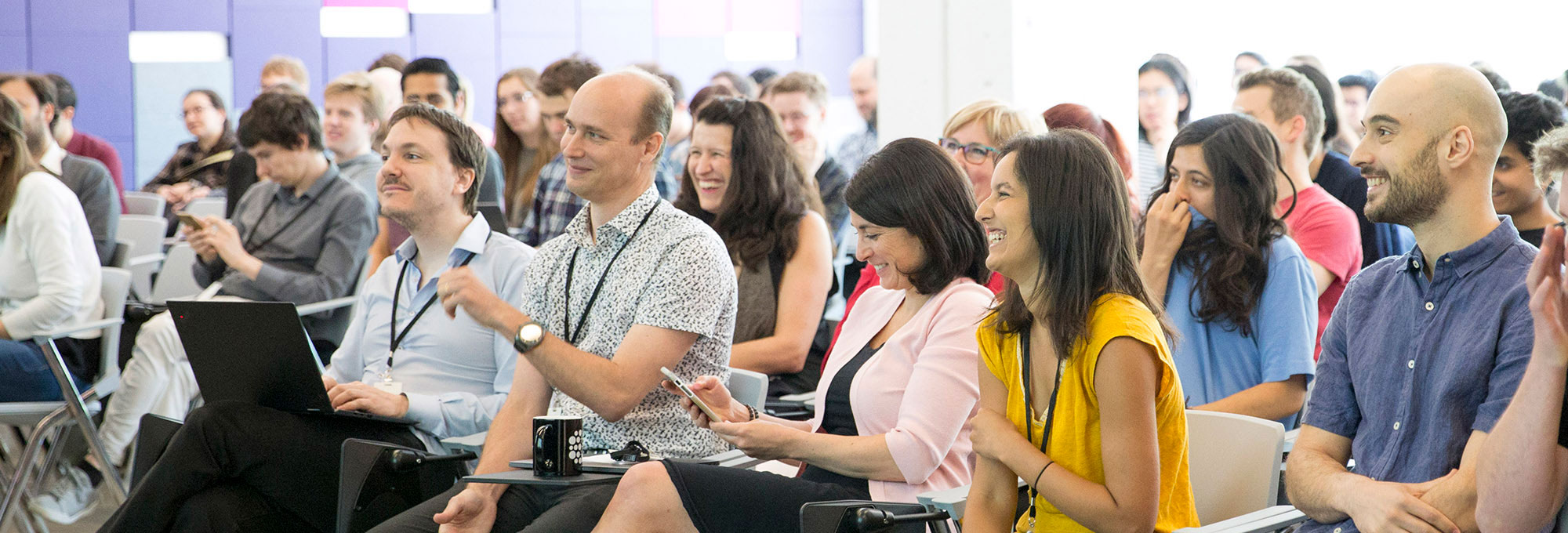
DIVERSITY AT THE SERVICE OF THE COMMUNITY AND SCIENCE
As an organization at the intersection of academic research and the technology sector, we recognize the challenge of representativity within these spheres, which is why diversity, equity, and inclusion are core to our values. Since our founding, we have established working committees, provided training sessions, including one on developing inclusive AI, and conducted research projects that address these issues. One of these projects aims to tackle biases against women, First Peoples, and members of minority groups. Across all internal policies and processes, Mila is committed to putting equity, diversity, and inclusion at the heart of its actions, particularly in the student selection and employee hiring processes.
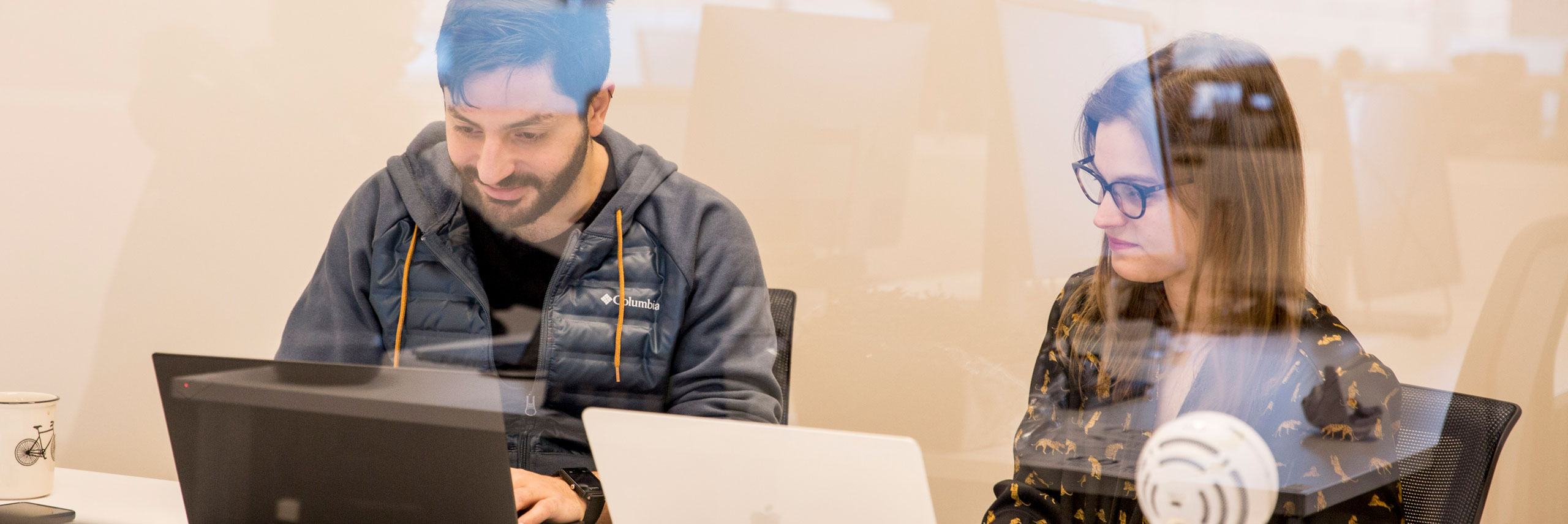
TRAINING
Investing in Talent Development
The exponential rise of AI in Quebec and worldwide is generating a growing need for qualified workers, as this technology will likely lead to job creation and significant economic growth in the coming decades.
In addition to our core academic programs, Mila is actively involved in many forward-looking workforce upskilling programs to expand and refine AI skills.
6th IVADO/Mila Deep Learning School
From March 25 to April 29, 2021, experts from IVADO and Mila provided training to nearly 500 professionals with basic knowledge of mathematics and programming. The 6th and future editions bring people from the industry closer to the ecosystem while developing their skills.
CIFAR Deep Learning and Reinforcement Learning Summer School
Co-organized by CIFAR in collaboration with Mila, the Vector Institute and Amii, the 2021 summer school brought together over 300 graduate students, interns, and industry professionals from more than 50 countries. Several Mila faculty members taught at the school, including Yoshua Bengio, Doina Precup, Irina Rish, and Jian Tang.
MISSION AND VALUES
Our Mission
Mila’s mission is to be a global pole for scientific advances that inspires innovation and the progress of AI for the benefit of all.
Our Values
Mila’s values are the cornerstone of our vision and feed the DNA of our organization.
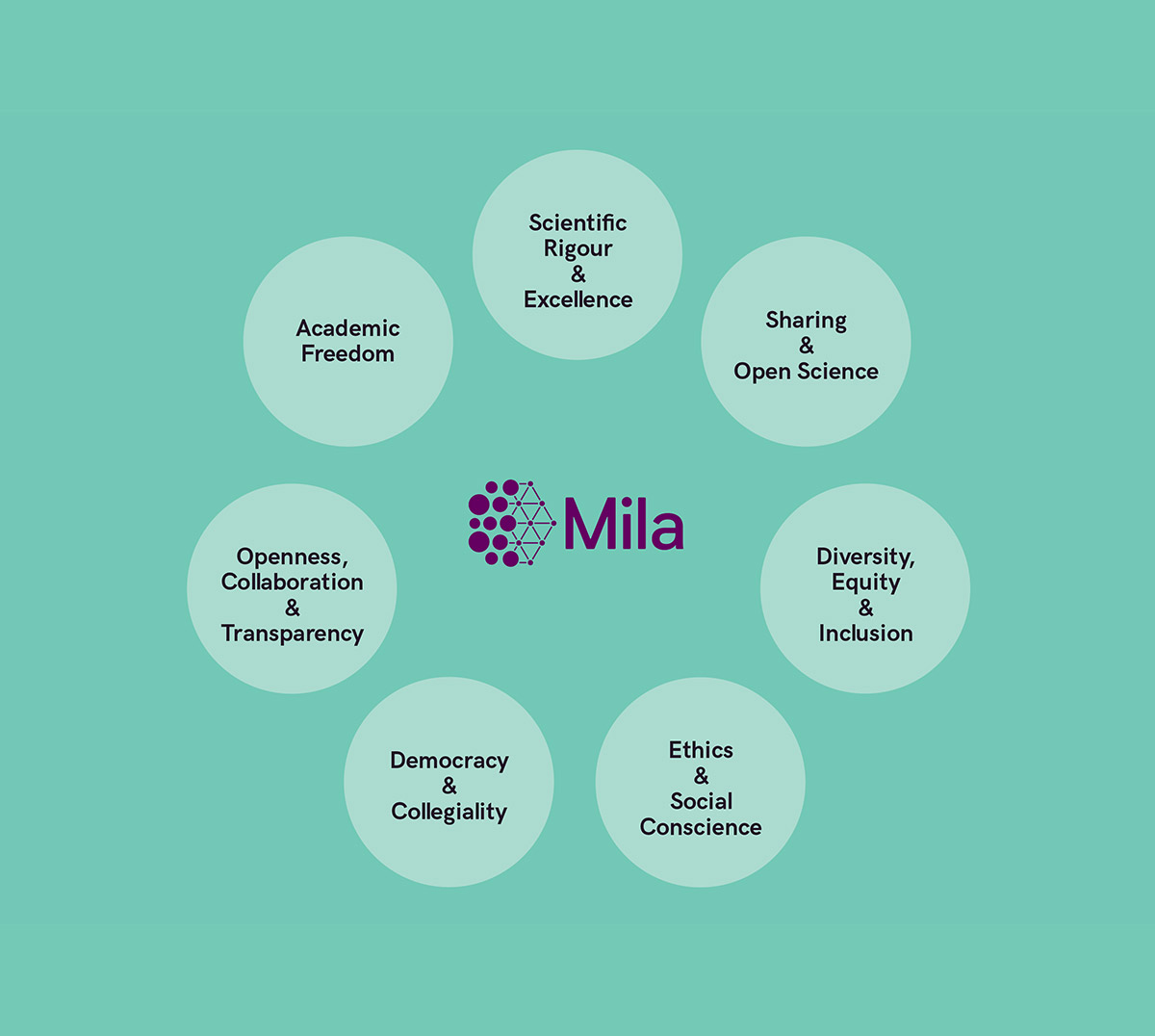
OUR STRATEGIC PILLARS
AI Talent
Attract, train and retain a diversified pool recognized globally for their high-level expertise.
Cutting-edge Research
Achieve the highest levels of scientific leadership in the development of AI.
AI Adoption
Contribute to partnerships, projects and initiatives to accelerate the deployment and adoption of AI.
Social Influence
Develop perspectives on the potential of AI and the issues related to its use.






